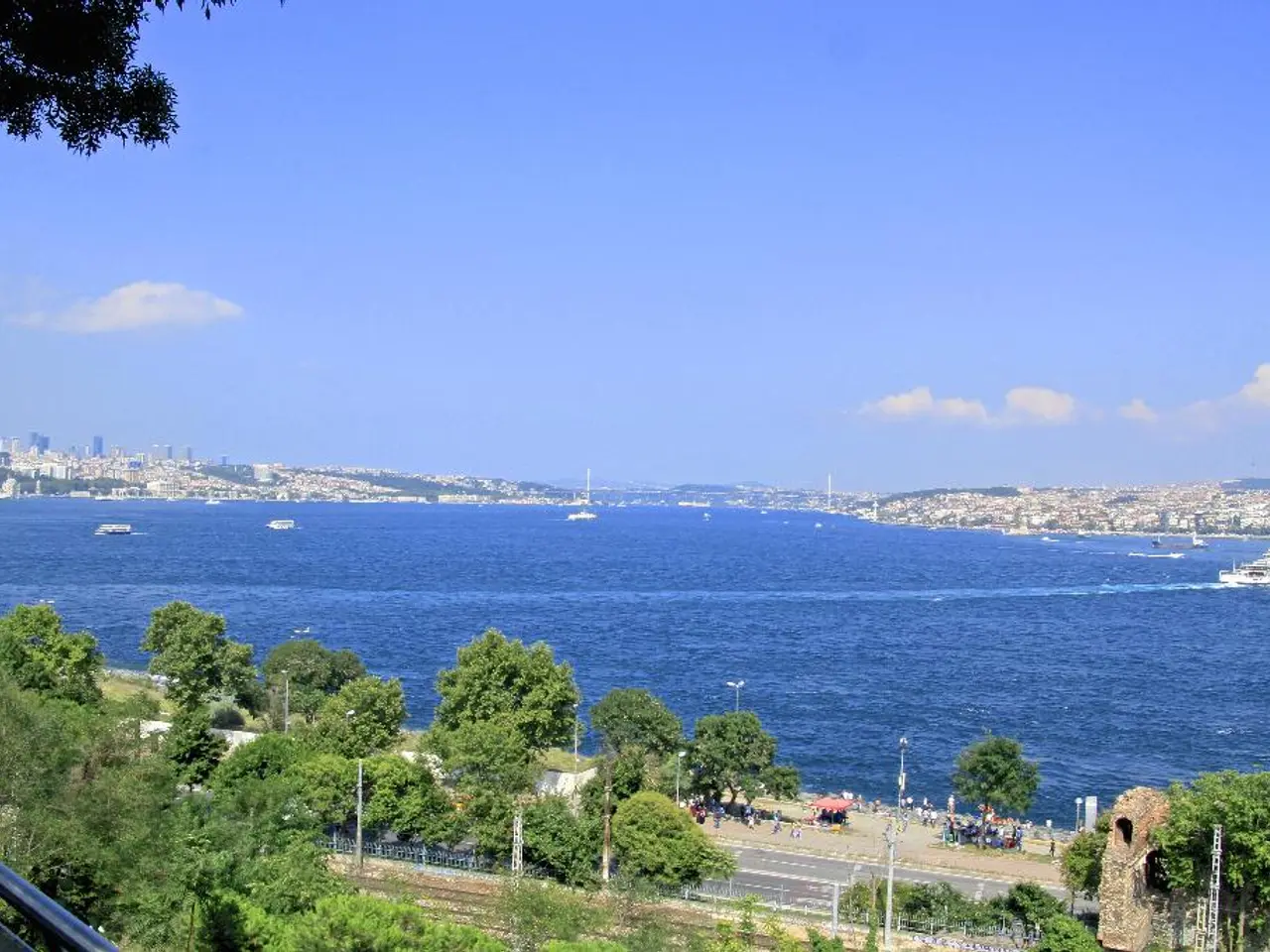Water Taxi Proposal by Hahn Receives Support from Metro Olympics Committee Moves Forward
In the lead-up to the 2028 Los Angeles Olympic and Paralympic Games, a unique transportation solution is gaining traction - a water taxi service. Proposed by Janice Hahn, Chair of the Metro Board of Directors and Los Angeles County Supervisor, the water taxi is intended to offer a fun and innovative way to navigate the city during the Games.
The Metro Board of Directors will vote on Hahn's motion in their monthly meeting on May 22, 2025. If approved, the water taxi would operate between San Pedro and Long Beach, two coastal cities that will host a significant number of sports during the Games.
Long Beach will be the second-highest host of sports in the 2028 Games, after Los Angeles, with events such as beach volleyball at Alamitos Beach, coastal rowing at the Waterfront, sport climbing at the Long Beach Convention Center, and water polo.
The water taxi proposal has earned widespread support from various organizations and local officials, including ILWU Local 13, Los Angeles City Councilmember Tim McOsker, Long Beach Councilwoman Tunua Thrash-Ntuk, Long Beach Councilwoman Mary Zendejas, the San Pedro Chamber of Commerce, the LA Maritime Institute, the Battleship Iowa, and LA Harbor Commissioner Lee Williams.
While water taxis are not a common mode of transportation in Los Angeles due to the lack of major waterways, the city's coastline and marinas could support such services. The feasibility of implementing a water taxi system for the Games, however, presents several challenges.
The city is focusing on a "transit-first" approach for the Olympics, with a focus on expanding public transit infrastructure, such as the Metro D Line, and enhancing bus services. Archer Aviation has been named the official air taxi provider for the LA28 Olympics, using electric vertical takeoff and landing (eVTOL) aircraft. Uber has also been named the official rideshare and delivery partner, offering cars, bikes, scooters, and meal delivery services during the Games.
Implementing a water taxi system would require significant investment in infrastructure, including docking facilities and boats, and would need to address logistical challenges like distance and accessibility. Venues are scattered across the metropolitan area, making water taxis impractical for most event locations. Building or upgrading marinas and docking facilities would be necessary, which could be costly and time-consuming. Obtaining permits and complying with environmental regulations would also be essential.
Despite these challenges, the water taxi proposal could offer an interesting alternative for future events or as a tourist attraction outside of the Olympics. For instance, attendees could park at the Harbor Gateway Transit Center in Gardena and take the J Line to San Pedro to catch the water taxi, significantly relieving traffic congestion.
In addition to the water taxi proposal, the Federal Transit Administration has awarded $77.5 million to Metro for a Zero-Emission Bus and Charging Infrastructure Project, aiming to improve public transport connections for San Pedro and surrounding communities, as well as for riders along Metro's J (Silver) Line.
As the 2028 Games approach, the water taxi proposal adds an exciting twist to the city's transportation plans. Whether it becomes a reality remains to be seen, but one thing is certain - the Games are set to bring innovation and excitement to Los Angeles.
- The city council, along with various community organizations and local officials, have expressed support for Janice Hahn's water taxi proposal for the 2028 Games, hoping it could serve as a sustainable and enjoyable transportation option during the events.
- If approved, the water taxi would not only cater to spectators during the Games but could also become a permanent tourist attraction, offering unique experiences to the community and the industry, particularly in terms of financial gains and tourism development.
- As part of Los Angeles' comprehensive transportation plan for the 2028 Games, the water taxi service might face challenges in infrastructure development, logistical concerns, and environmental regulations, which would necessitate careful planning and financial investment from city council and other stakeholders.




